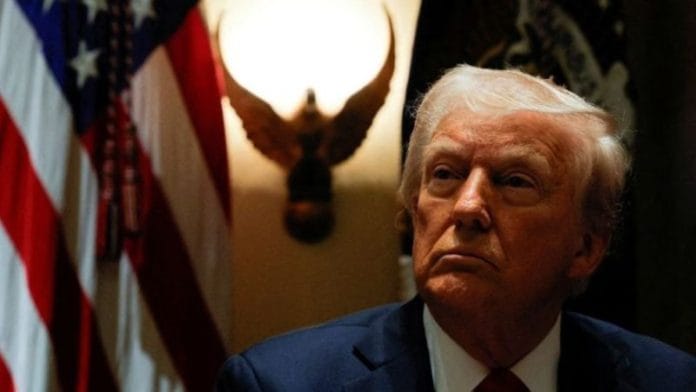New Delhi: The United States Wednesday sanctioned an Indian company with links to German national Marco Klinge for involvement in the procurement of missile propellant ingredients for Iran’s missile programme.
The Office of Foreign Assets Control (OFAC) in the US Treasury Department sanctioned Klinge and several firms related to the United Arab Emirates (UAE)-based German national, including Farmlane Private Limited, registered in Chandigarh.
“The United States is today sanctioning 32 entities and individuals based in Iran, China, Hong Kong, the United Arab Emirates (UAE), Türkiye, India, and other jurisdictions that operate multiple procurement networks supporting Iran’s ballistic missile and unmanned aerial vehicle (UAV) production, including on behalf of the Islamic Revolutionary Guard Corps (IRGC),” Thomas Pigott, the principal deputy spokesperson at the US Department of State, said in a statement Wednesday.
“The United States will continue to use all available means, including sanctions on entities based in third countries, to expose, disrupt, and counter Iran’s procurement of equipment and items for its ballistic missile and UAV programs, which jeopardise regional security and international stability.”
According to OFAC, a three-person partnership known as MVM Partnership has “coordinated” the purchase of propellants such as sodium chlorate, sodium perchlorate and sebacic acid, primarily from China on behalf of Parchin Chemical Industries (PCI). PCI, according to the OFAC, is an element linked with Iran’s Defence Industries Organisation (DIO), responsible for the import and export of chemical goods.
Marco Klinge worked along with Türkiye-based Majid Dolatkhah and Vahid Qayumi to import these chemicals into Iran for its missile programme. Sodium chlorate is used to produce sodium perchlorate, which is key to producing ammonium perchlorate—a controlled chemical under the Missile Technology Control Regime (MTCR).
OFAC said in its statement, “Ammonium perchlorate is used in solid propellant rocket motors, which are commonly used for ballistic missiles. Sebacic acid is used to produce resins—which are materials sought by Iran for its ballistic missile program—and plasticisers, certain types of which are propellant additives and agents controlled by the MTCR.”
Klinge is allegedly responsible for the procurement of chemicals from India and China, while Dolatkhah is “responsible” for the procurement of materials from Türkiye. Qayumi is responsible for the business inside Iran, according to OFAC.
OFAC said, “Klinge is the point of contact for UAE-based company MVM Amici Trading LLC (MVM Amici) and has arranged MVM Amici’s procurement of China-origin sodium chlorate for use in Iran. Klinge also serves as the director of India-based Farmlane Private Limited (Farmlane) and as the chief executive officer of Germany-based EVA Handelsgesellschaft UG (EVA).”
Farmlane Private Limited has been sanctioned as a part of the secondary sanctions imposed on Klinge. This is not the first time Indian firms have figured in a US sanctions list.
Several Indian entities and nationals have faced the imposition of US sanctions for their links to Russia and Iran. US President Donald Trump, in particular, has sought to impose economic penalties on entities and individuals trading with Iran as a part of his “maximum pressure campaign.”
Since walking out of the Joint Comprehensive Plan of Action (JCPOA) to curtail Iran’s nuclear programme in 2018, Trump imposed a large number of sanctions on Tehran’s economy.
The Trump administration withdrew the sanctions waiver given to India to operate the port of Chabahar, but was allowed a six-month waiver last month to continue operations.
Indian officials have maintained that it is fully compliant with all international law, such as the MCTR and the Wassenaar Arrangement, regarding the trade of controlled chemicals that could be used to build ballistic missiles.
Randhir Jaiswal, official spokesperson for the Ministry of External Affairs, said when questioned on sanctions imposed by the US on Indian firms for exports of dual-use technologies in November 2024, “India has a robust legal and regulatory framework on strategic trade and non-proliferation controls. We are also a member of three key multilateral non-proliferation export control regimes: the Wassenaar Arrangement, the Australia Group and the MCTR; and have been effectively implementing relevant United Nations Security Council (UNSC) sanctions and UNSC Resolution-1540 on Non-Proliferation.”
(Edited by Insha Jalil Waziri)
Also Read: US sanctions Rosneft & Lukoil: What we know of 2 oil giants that produce half of Russia’s crude






